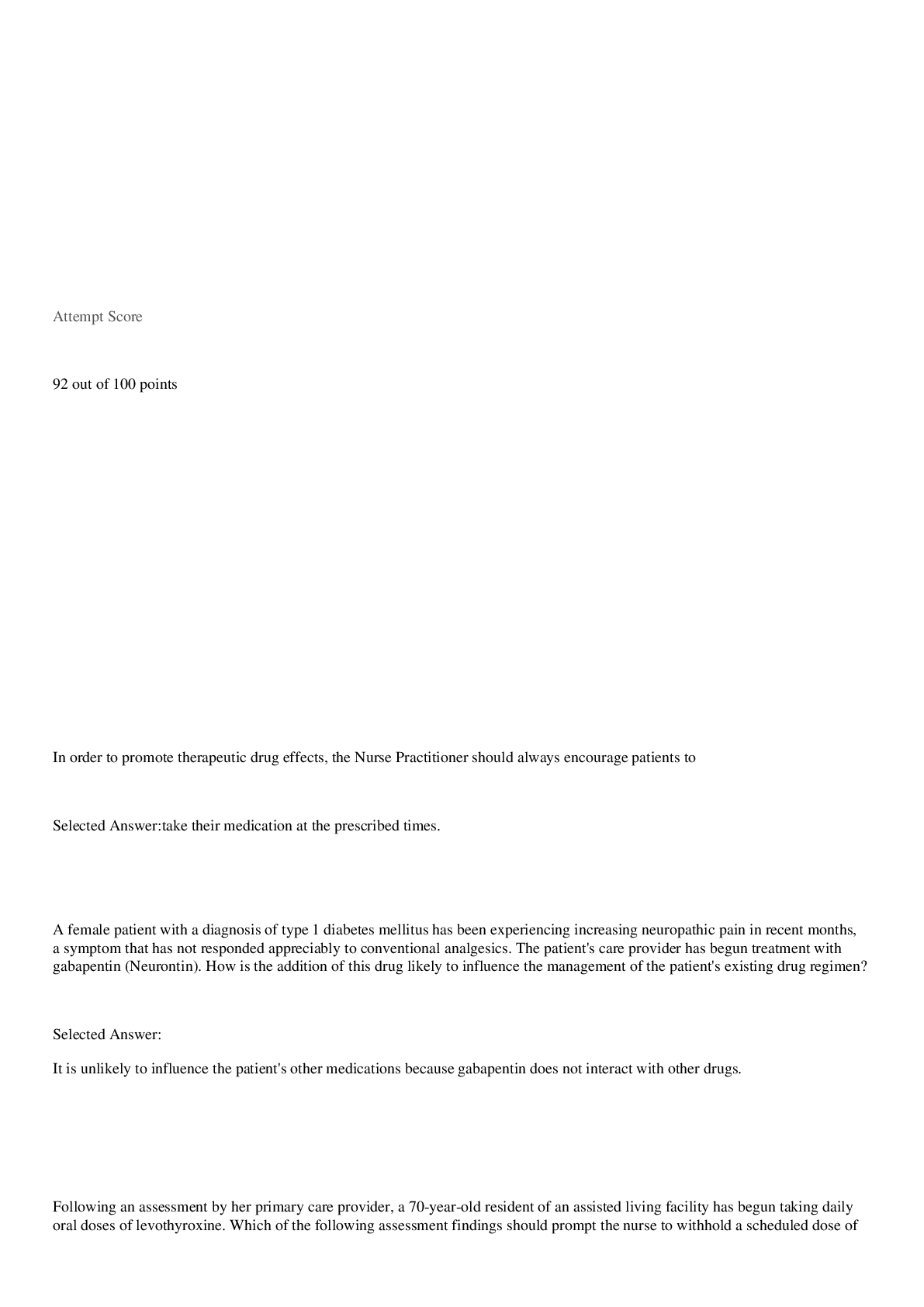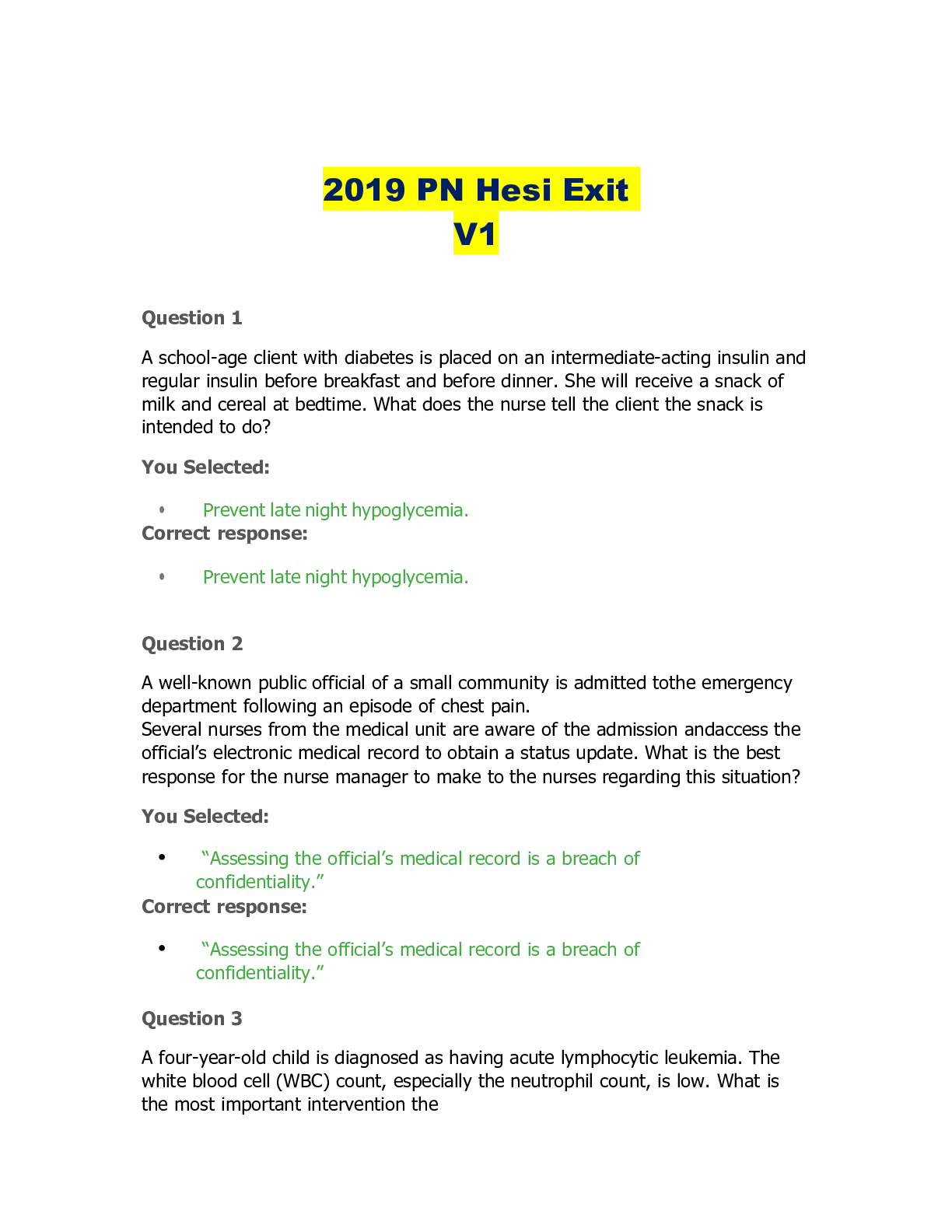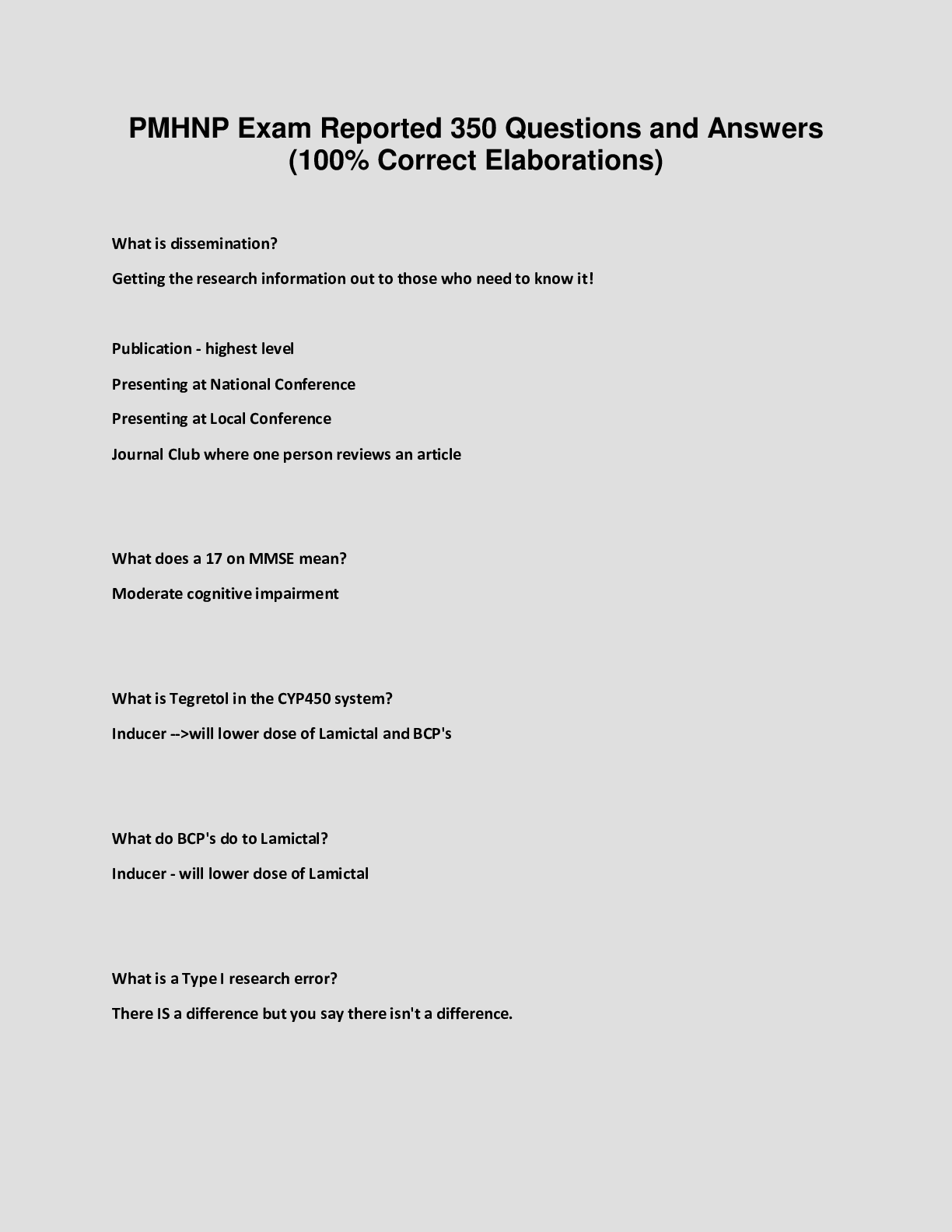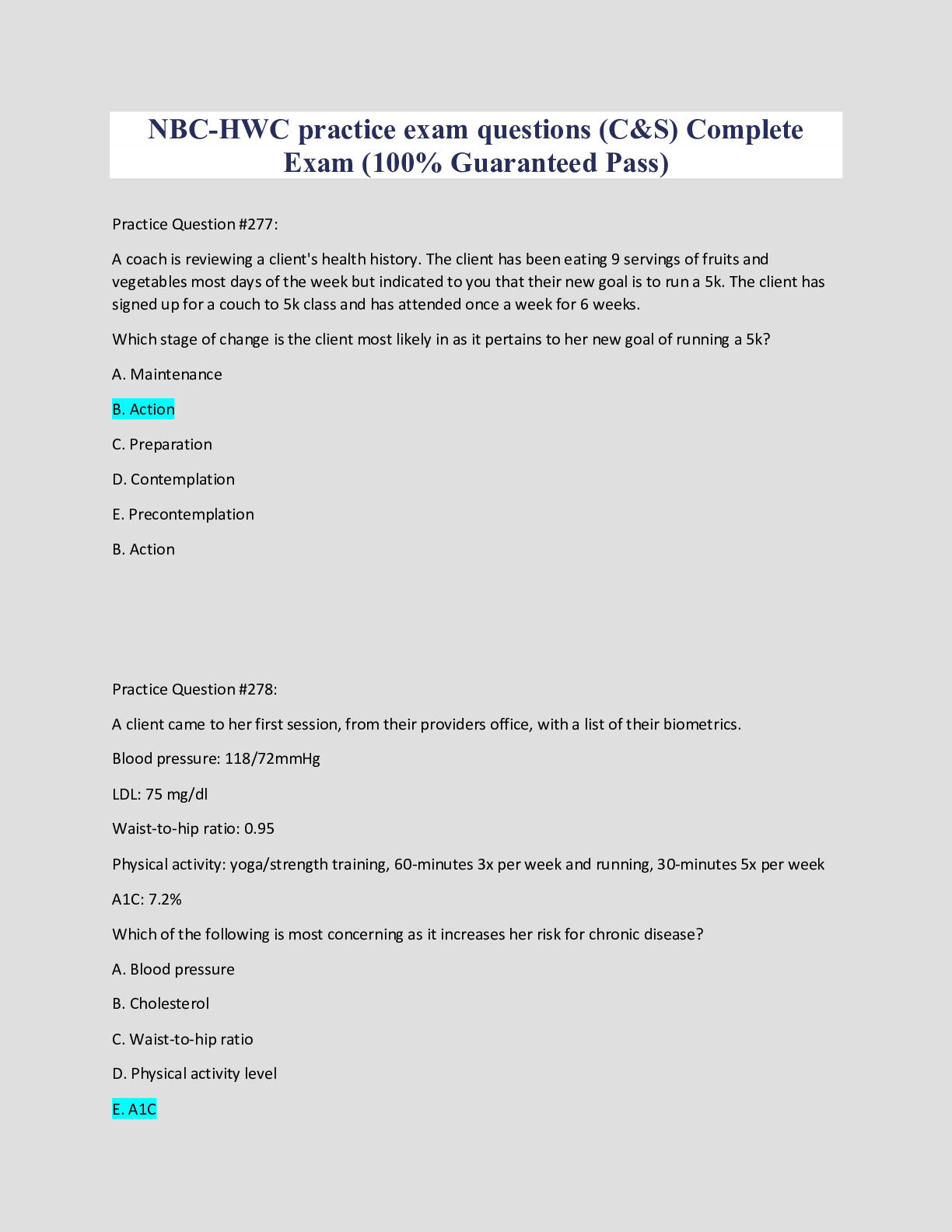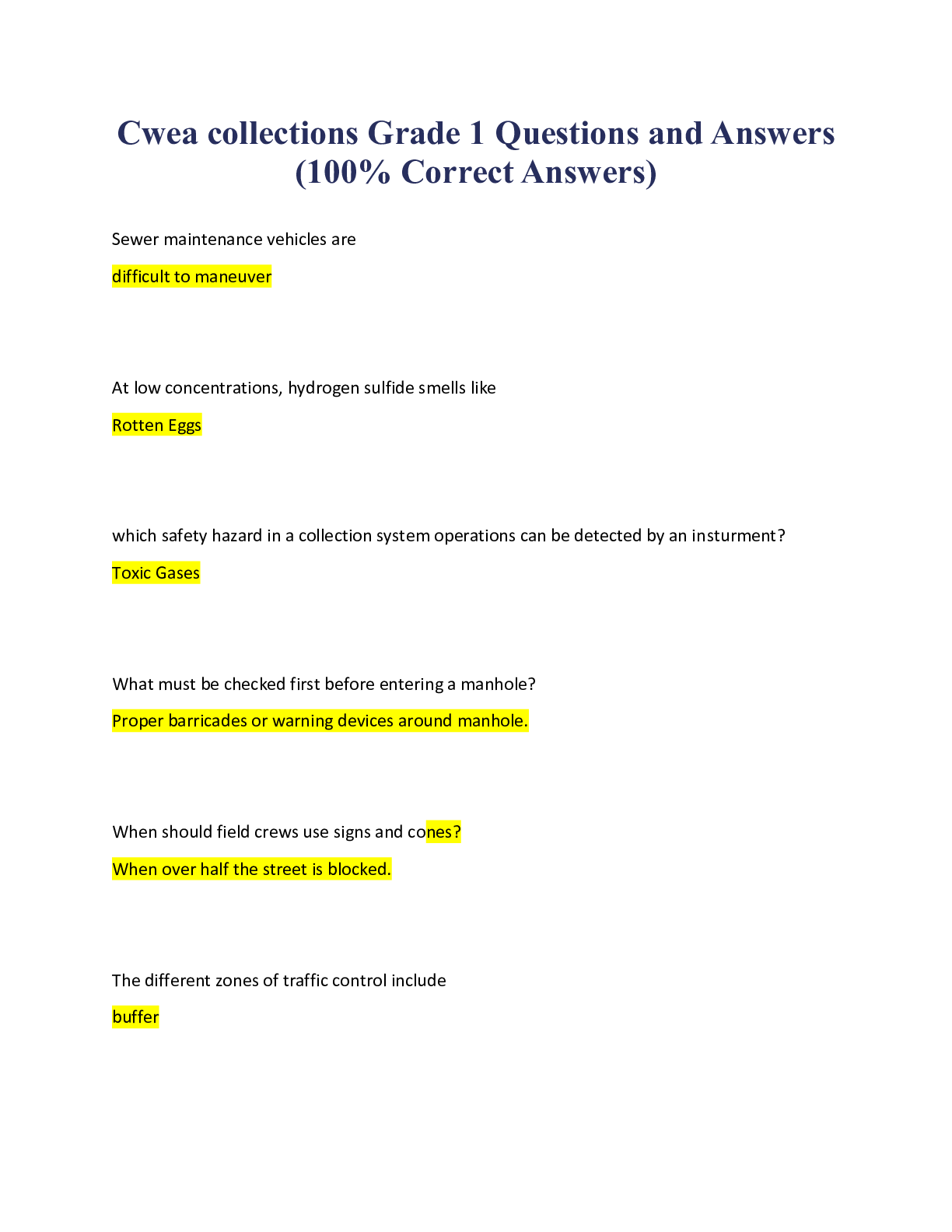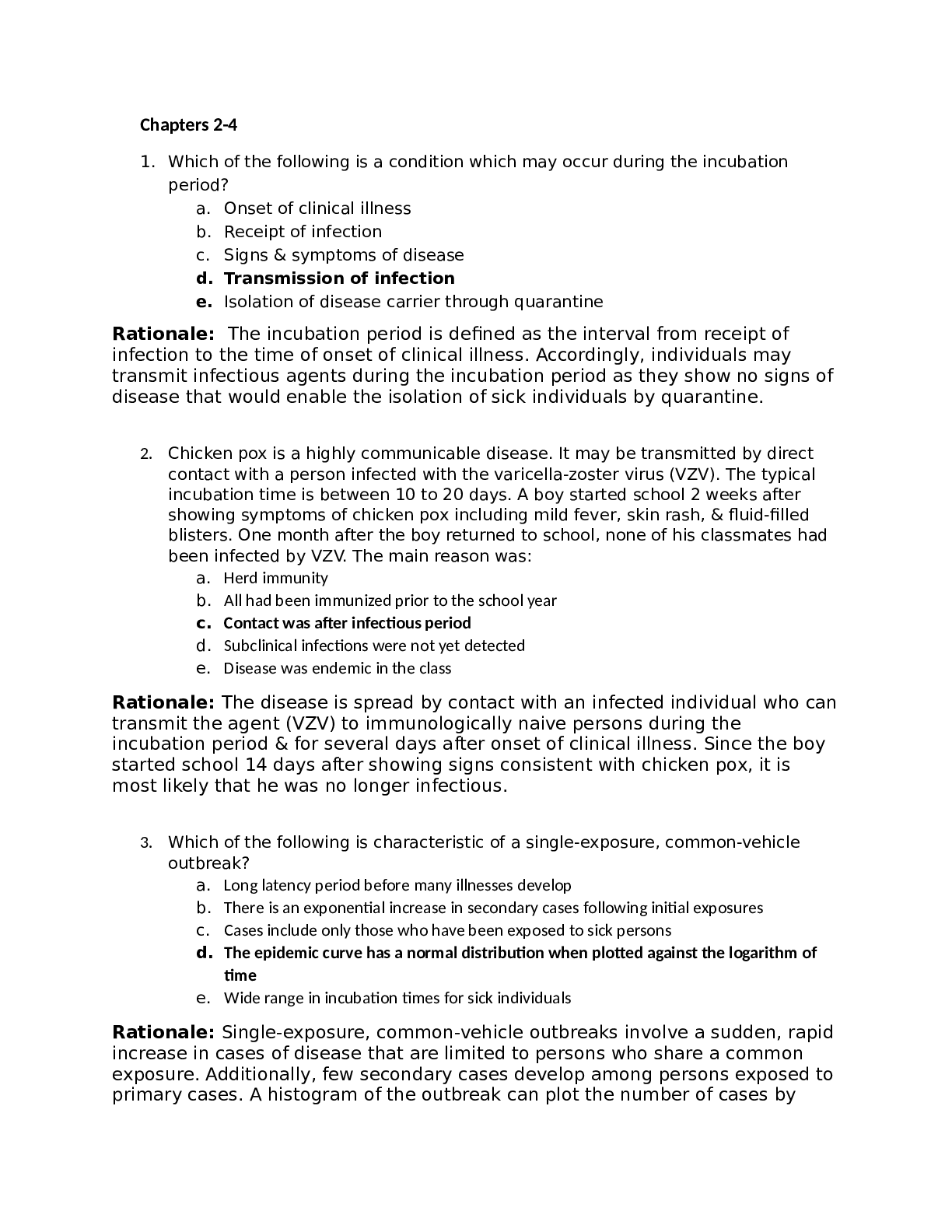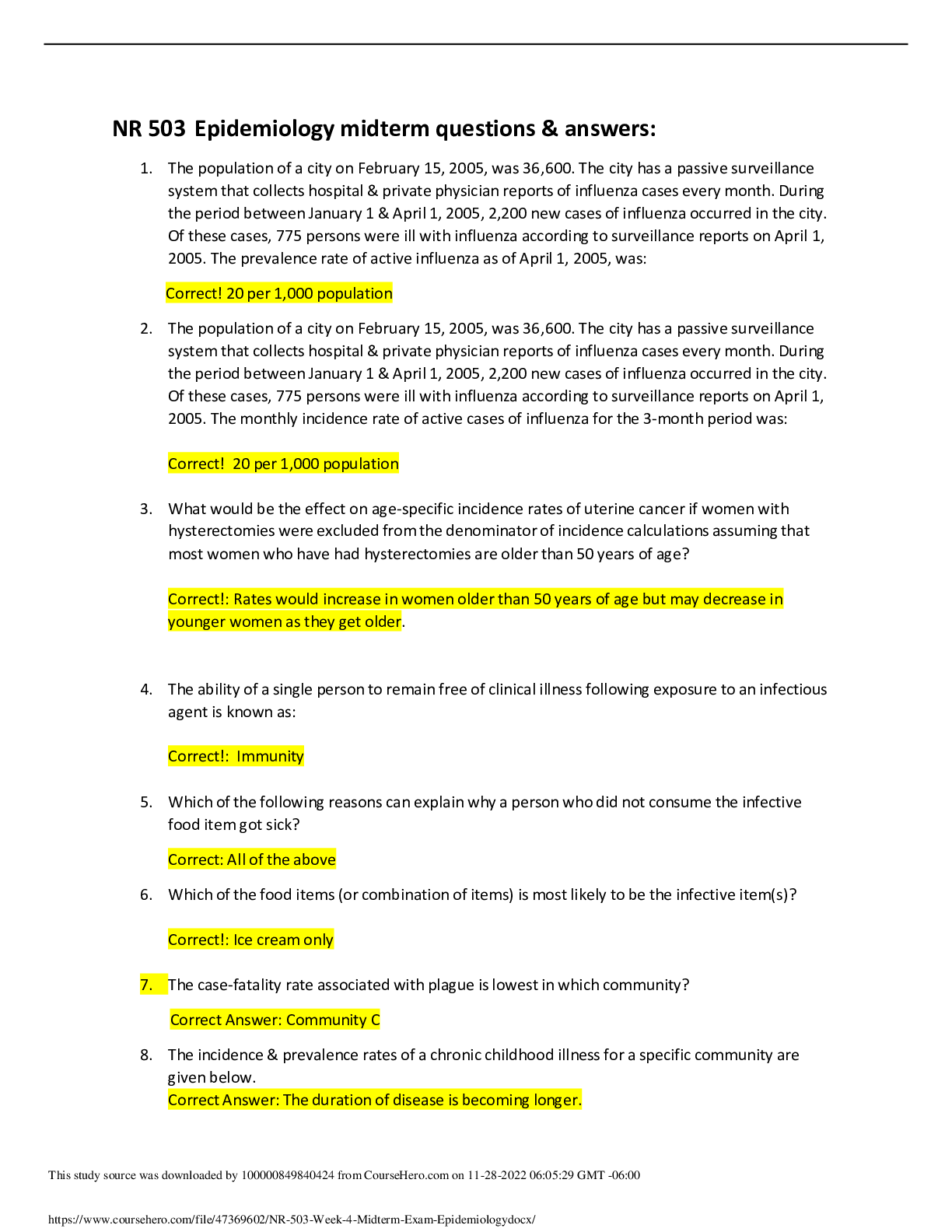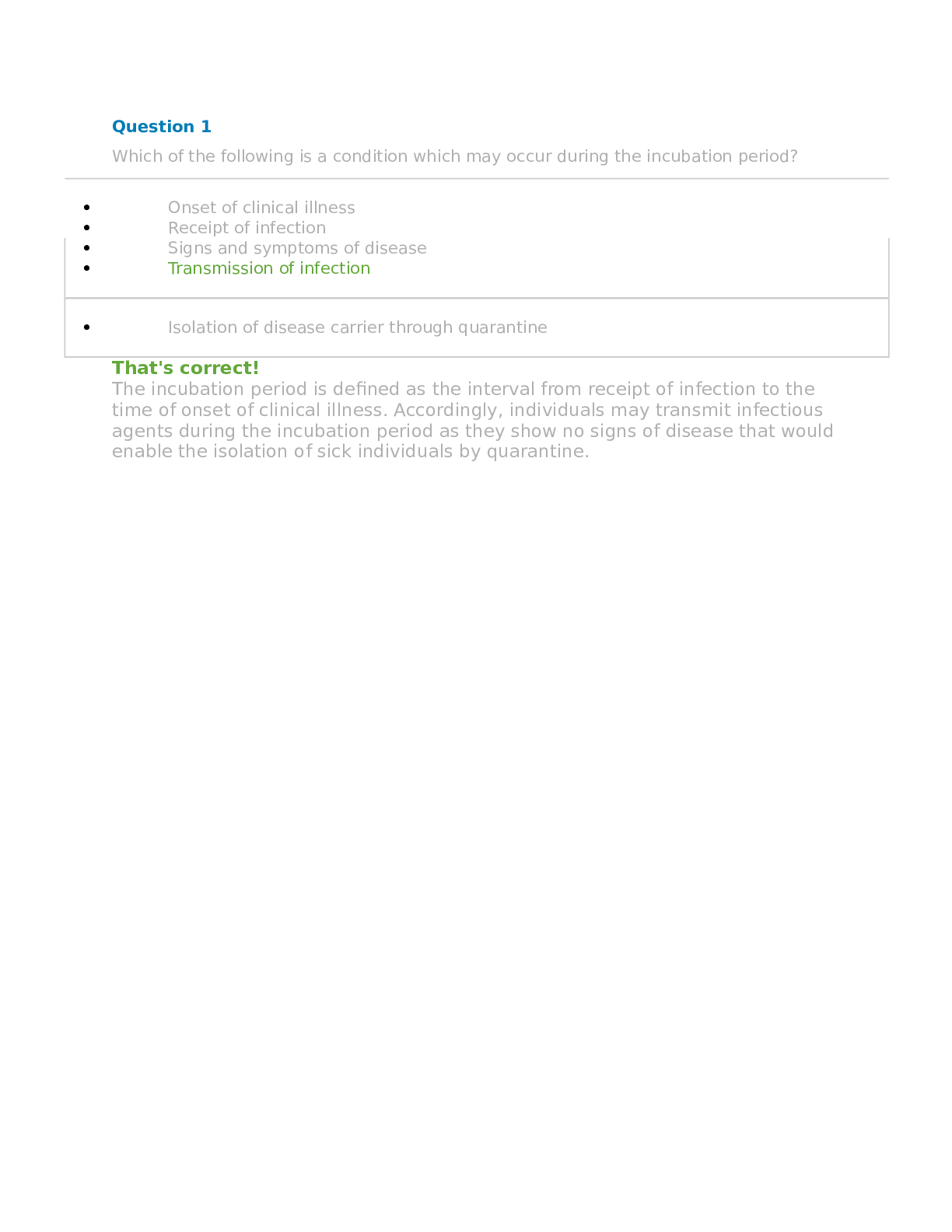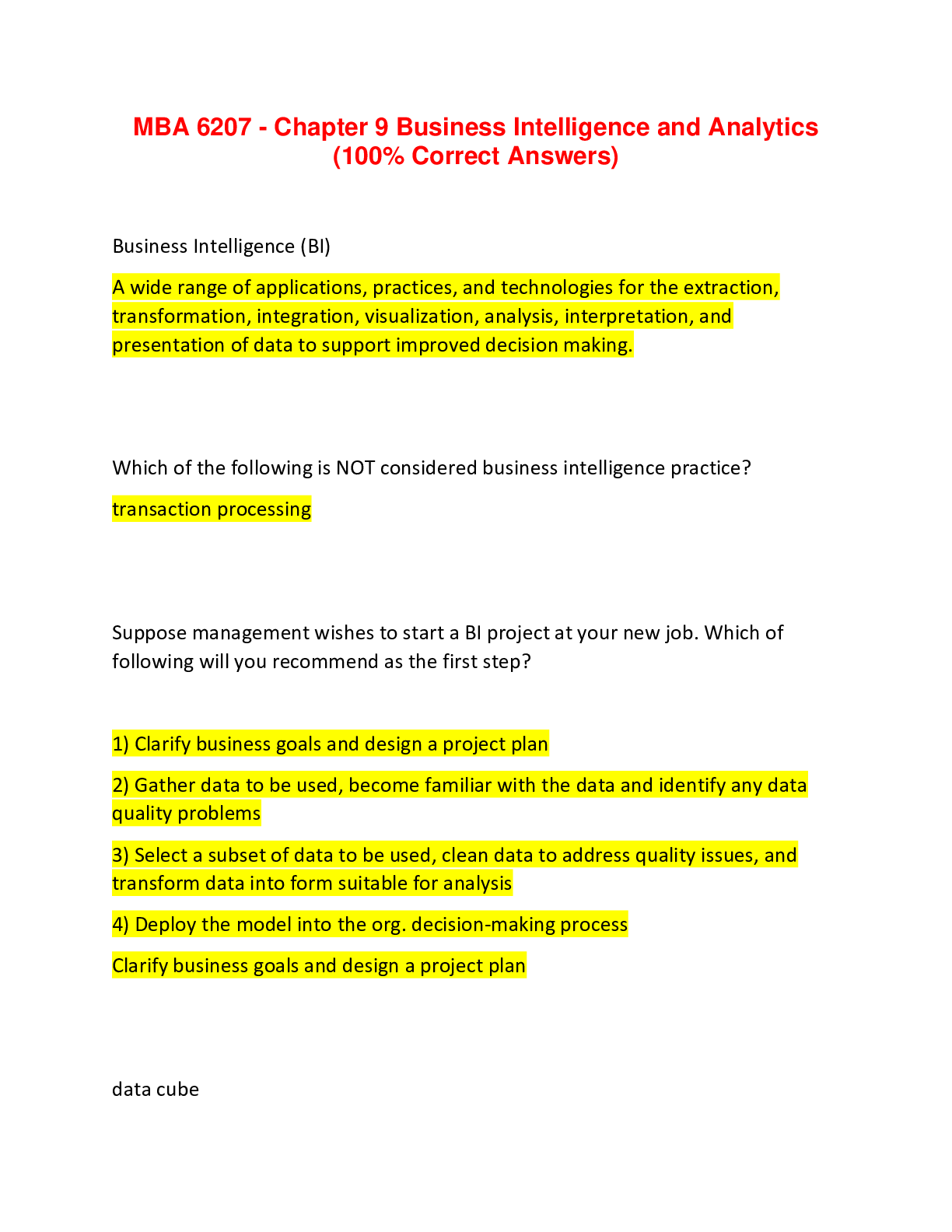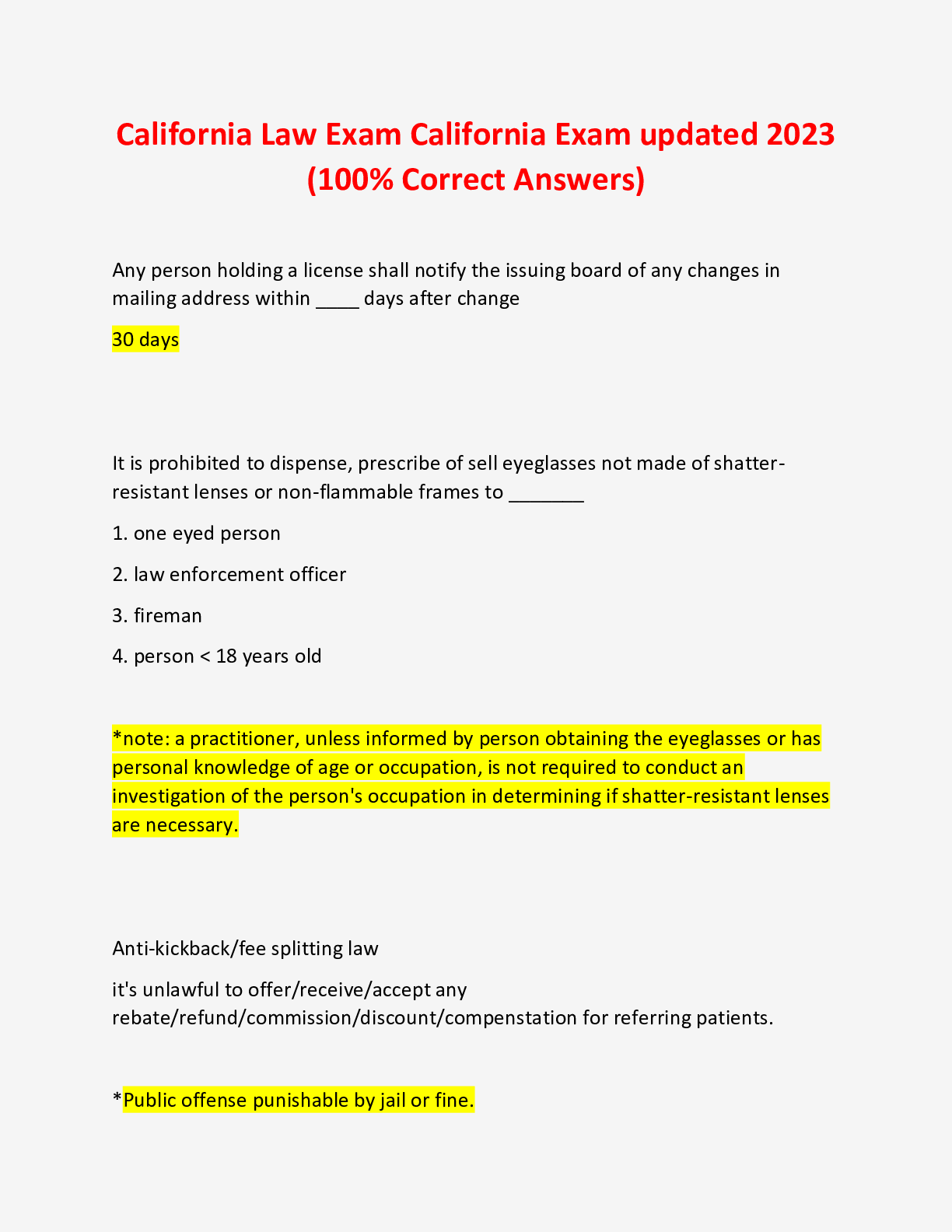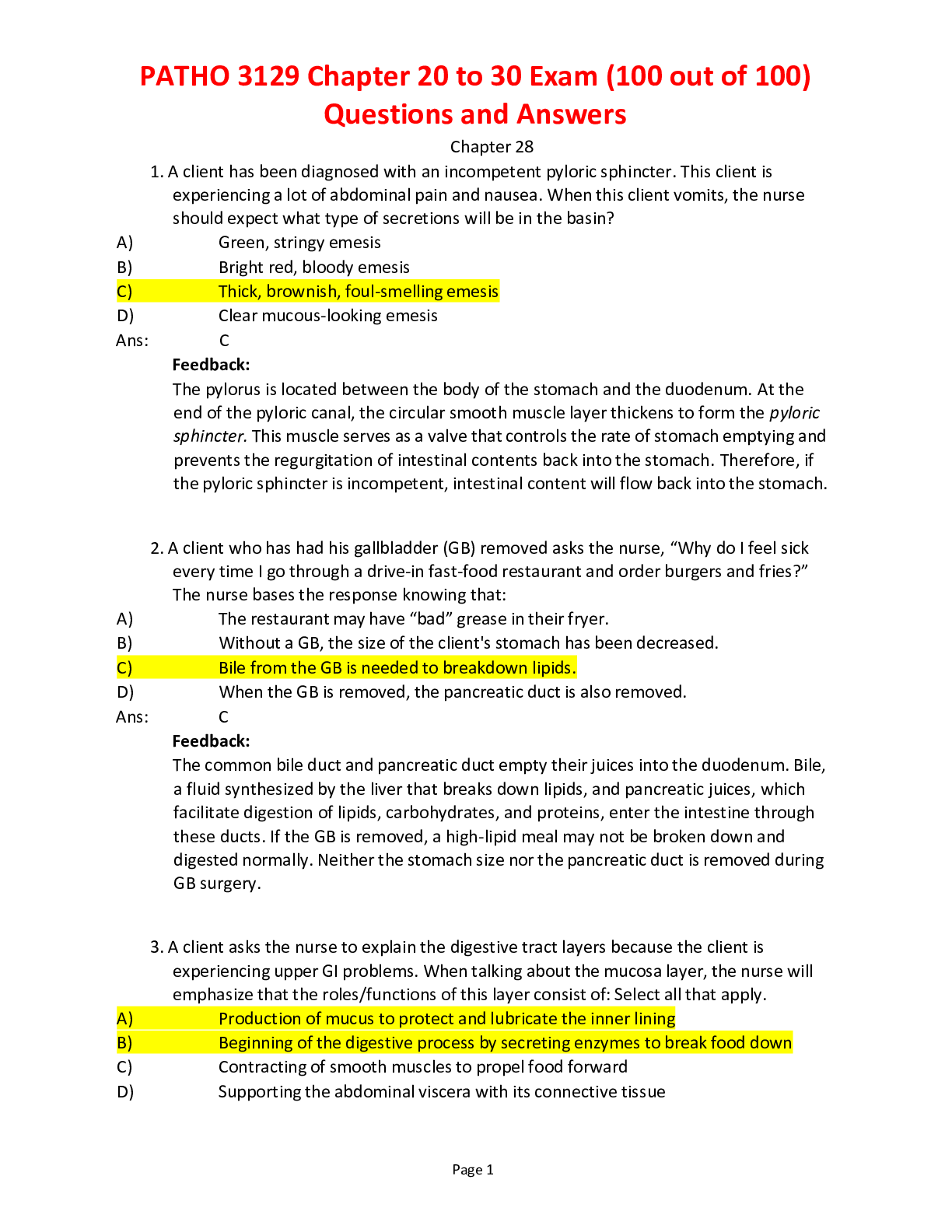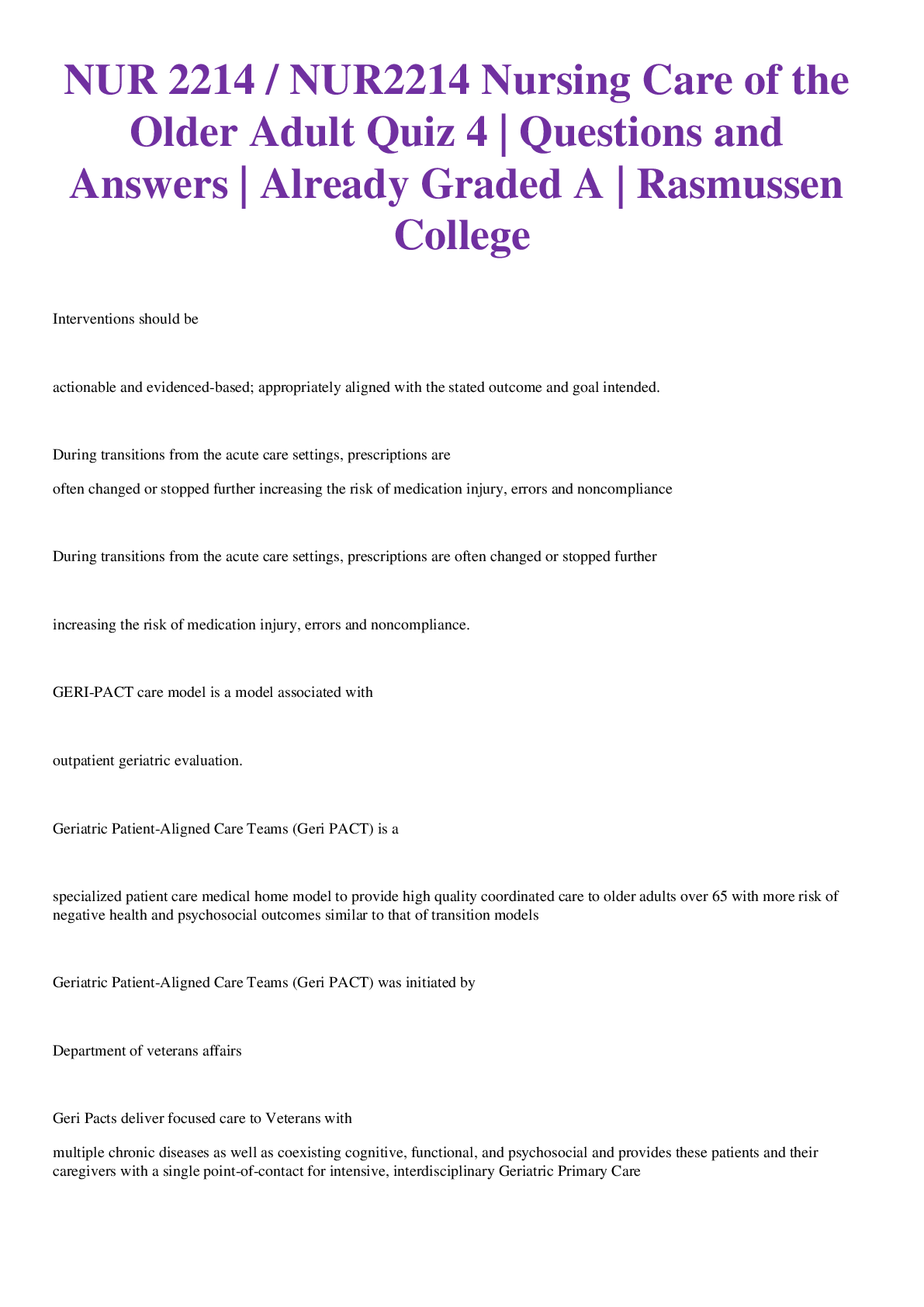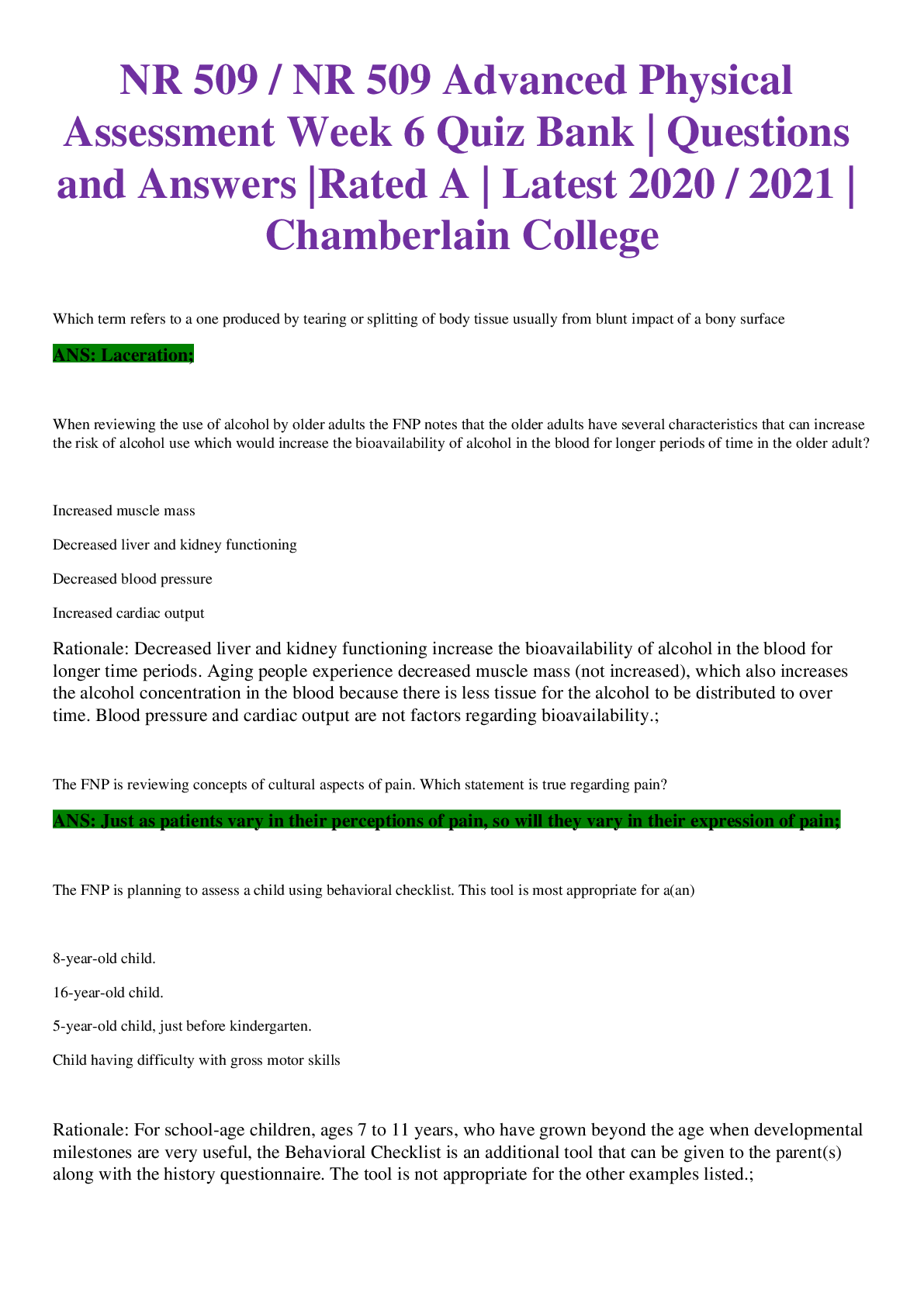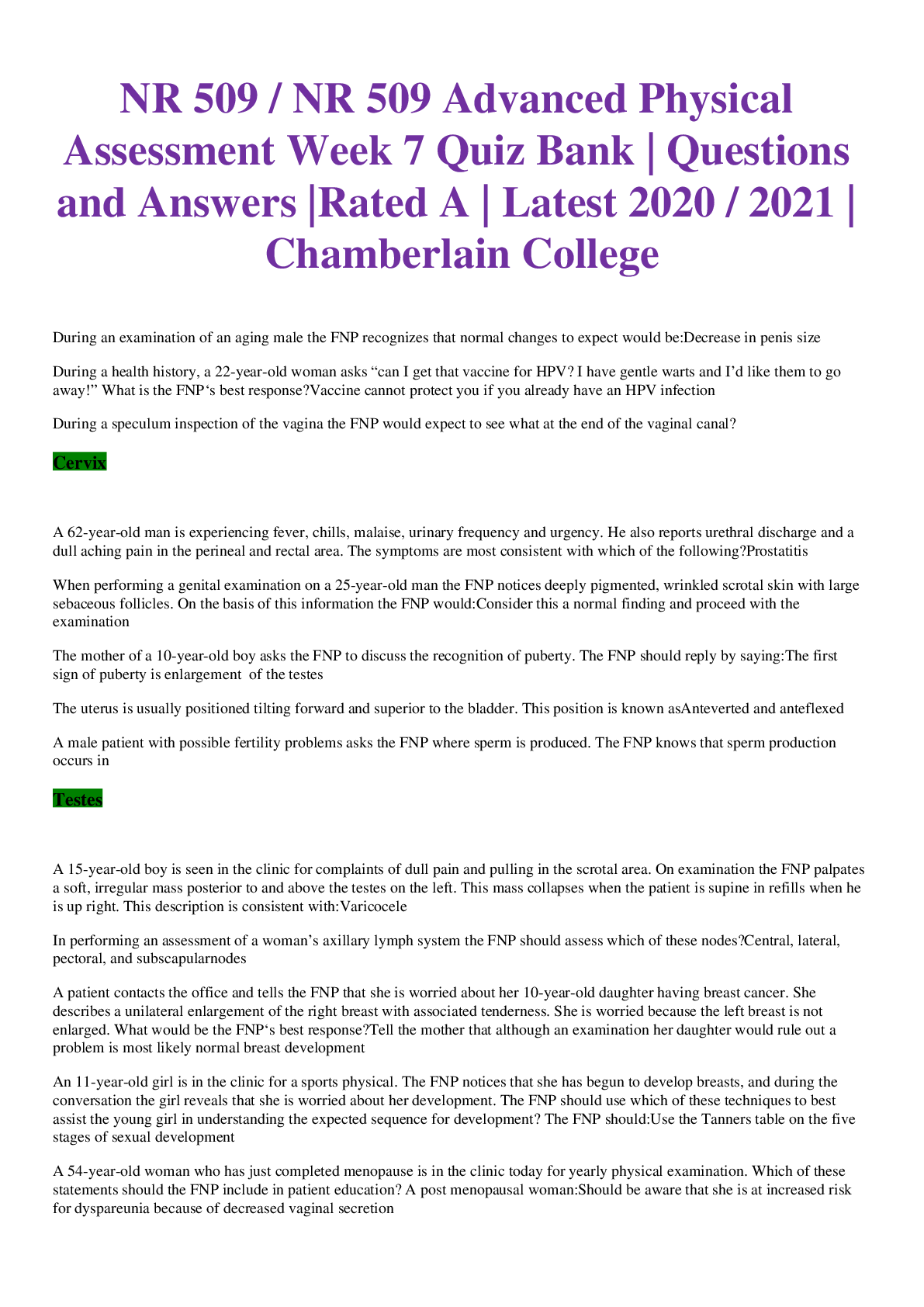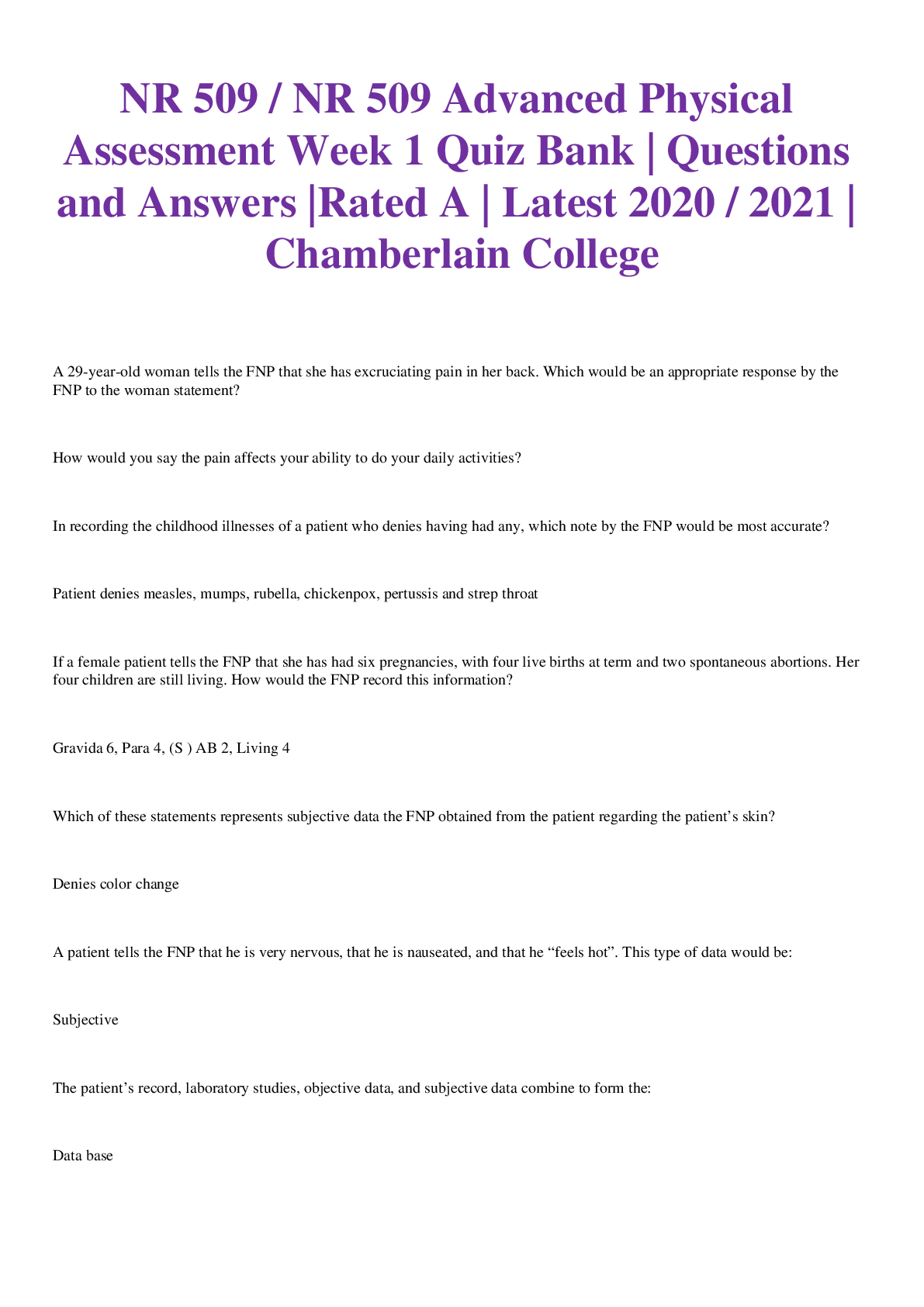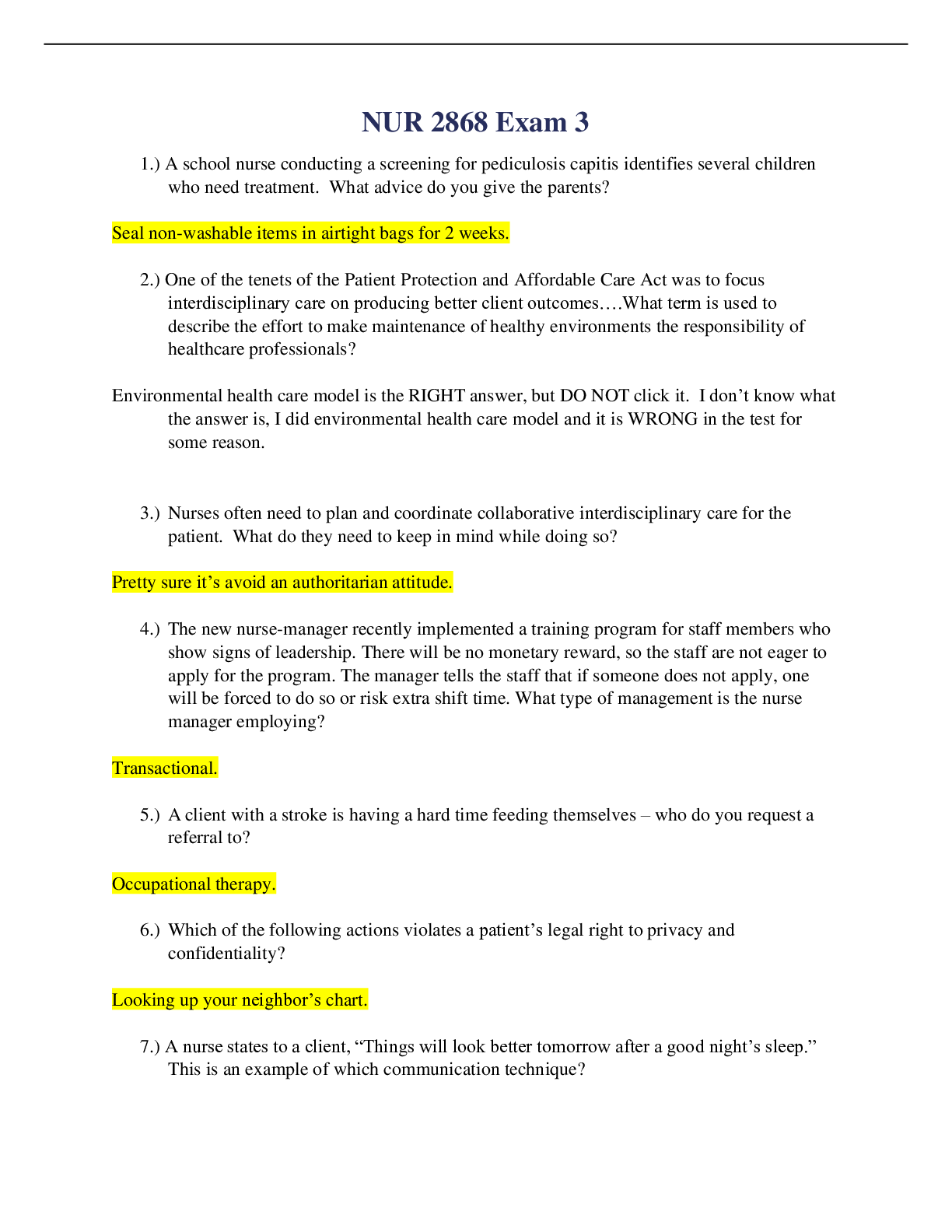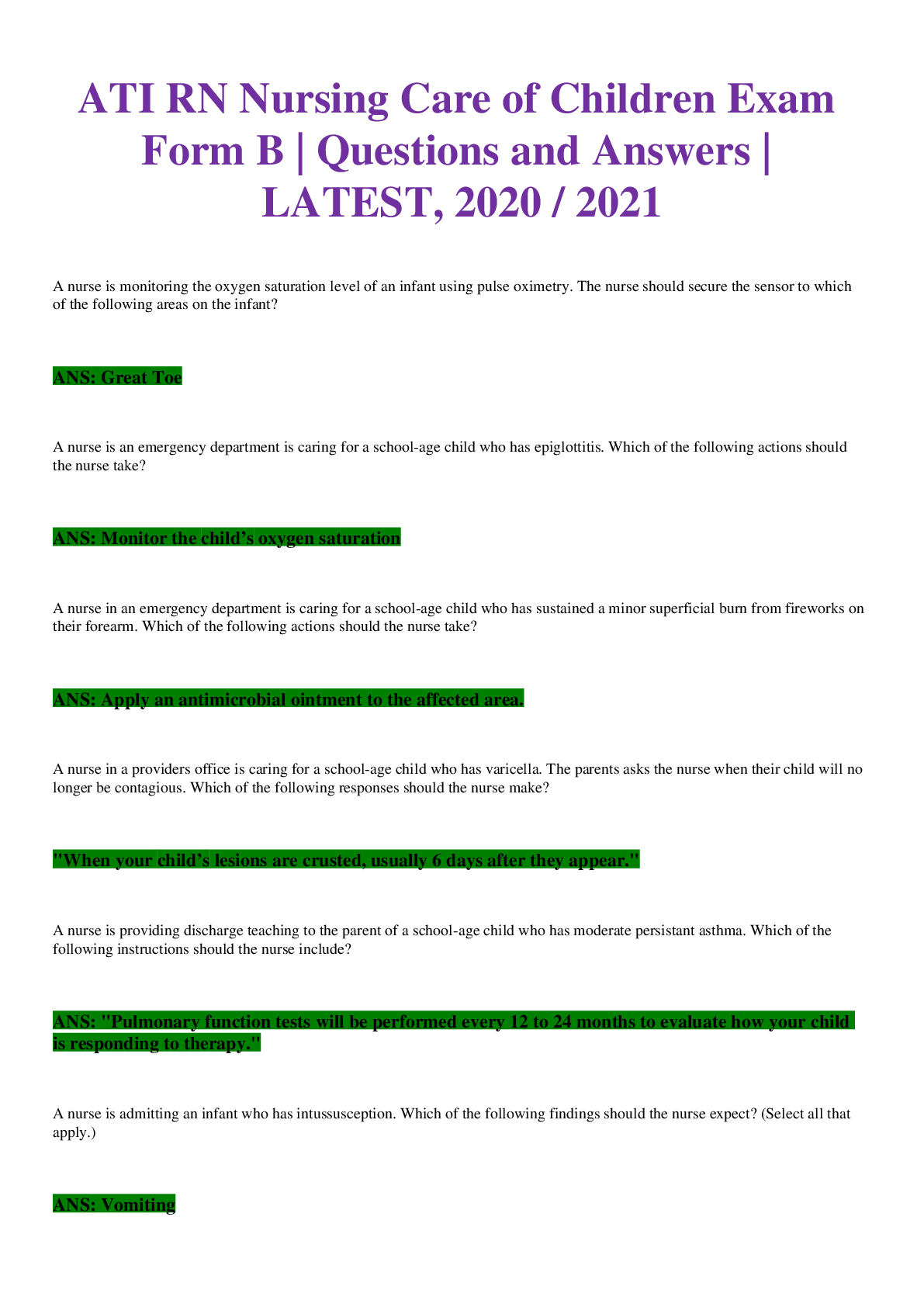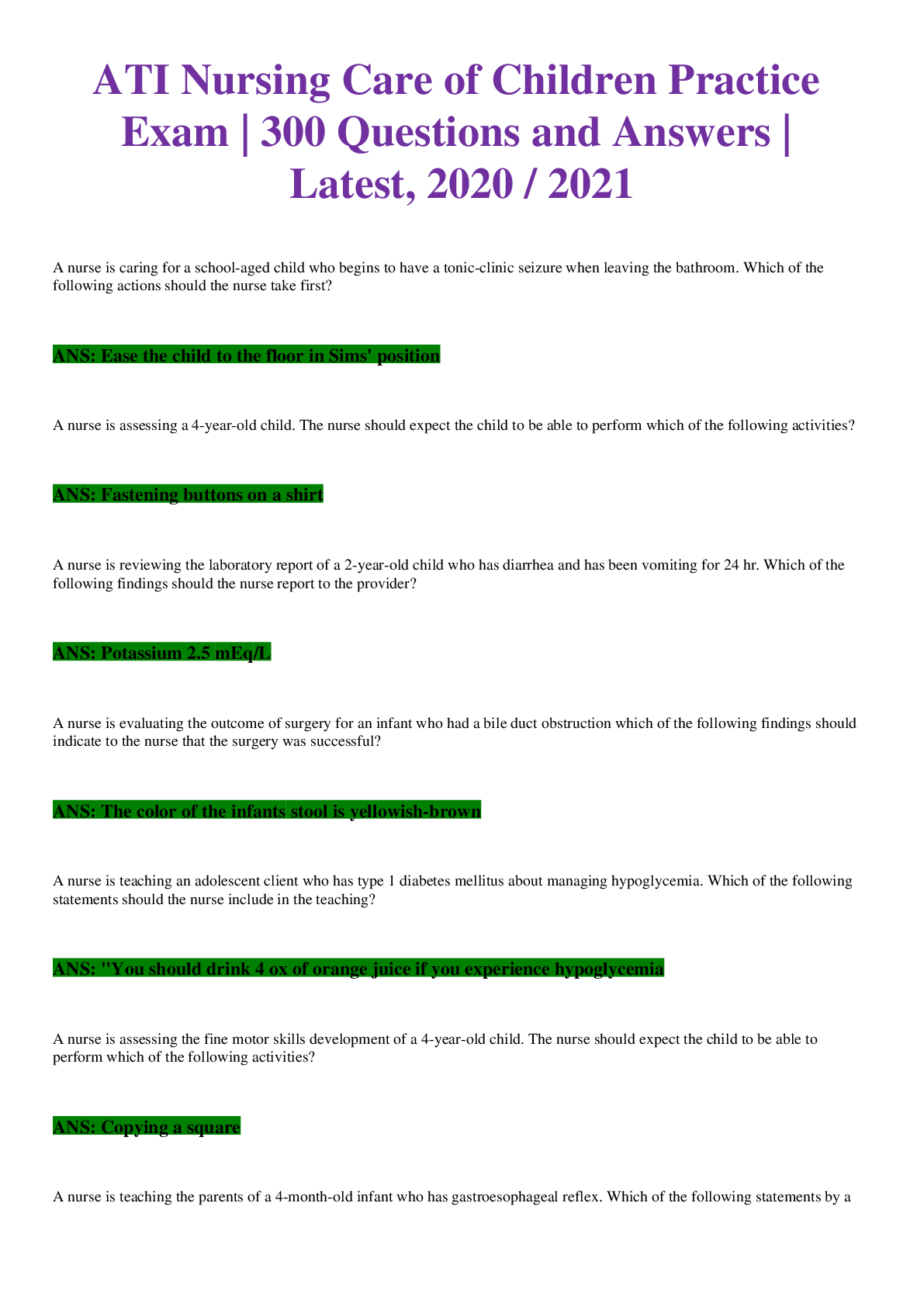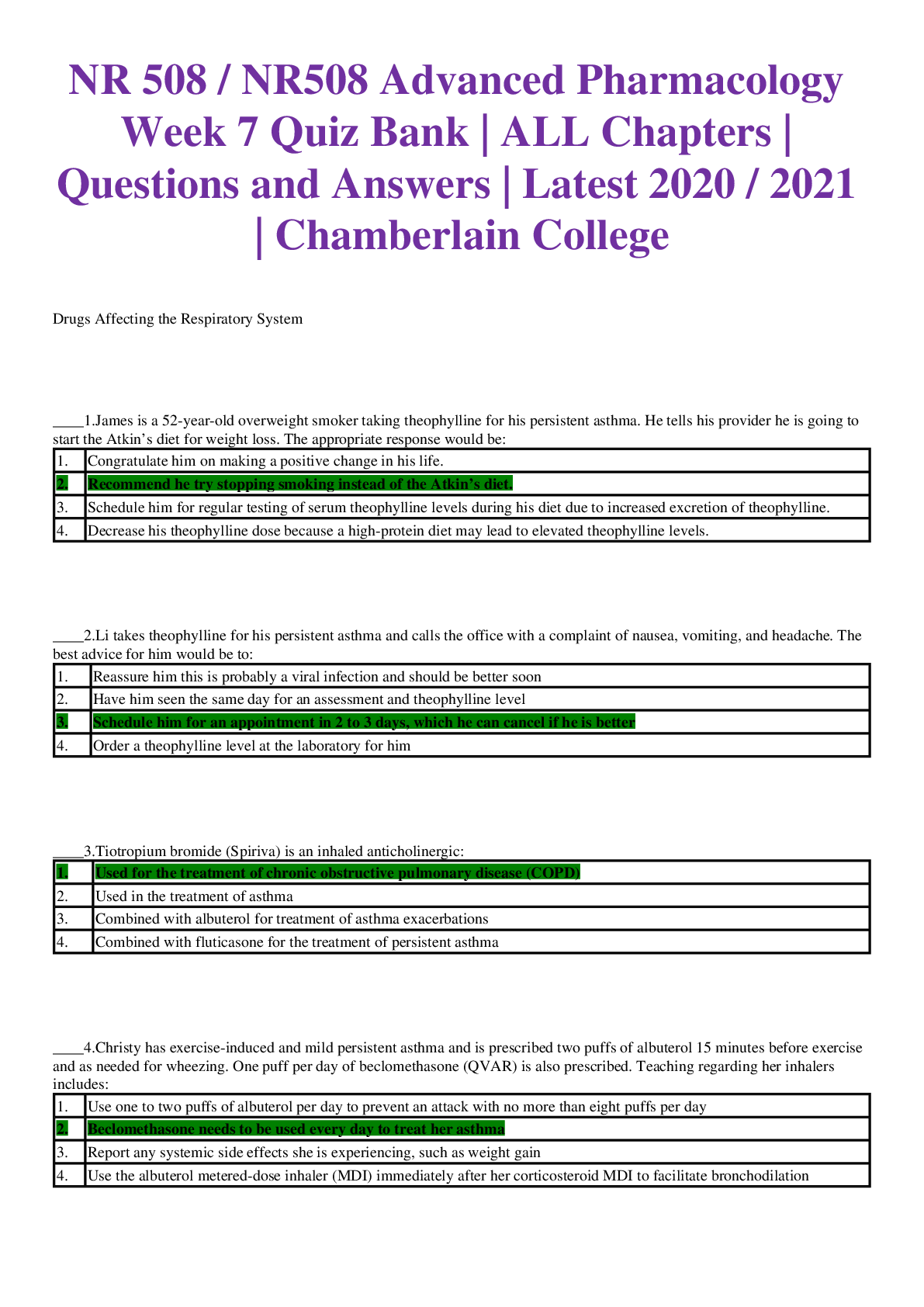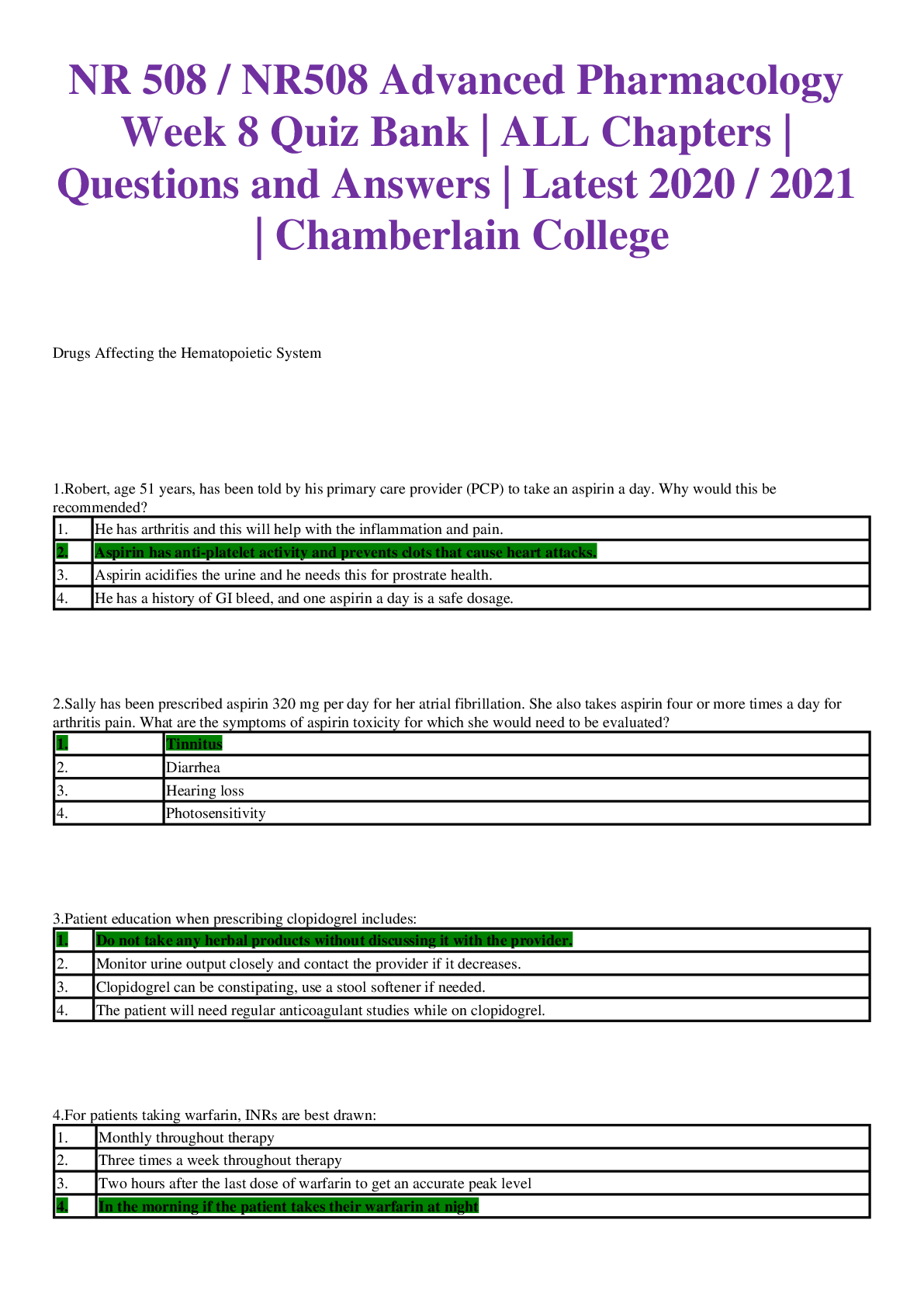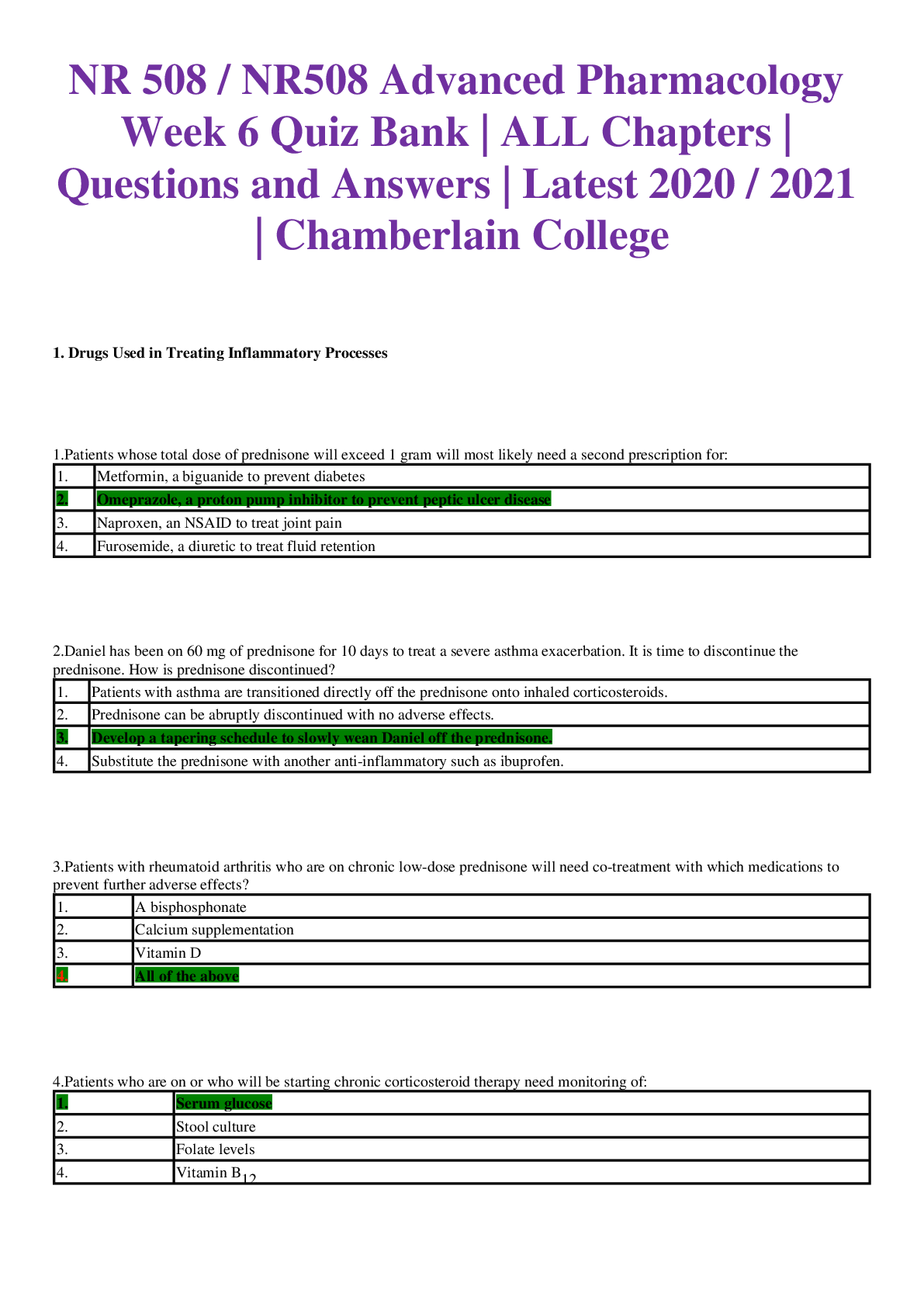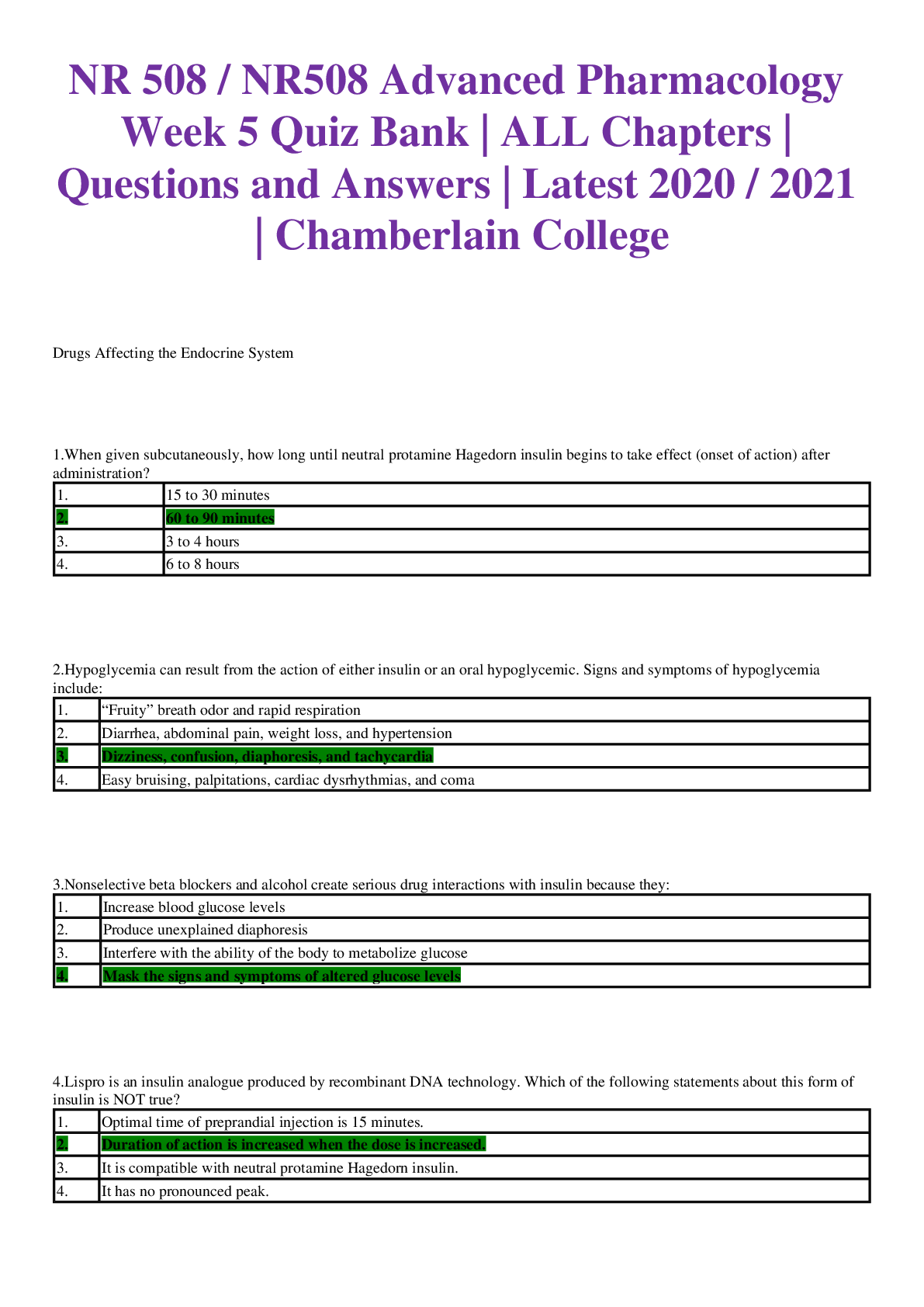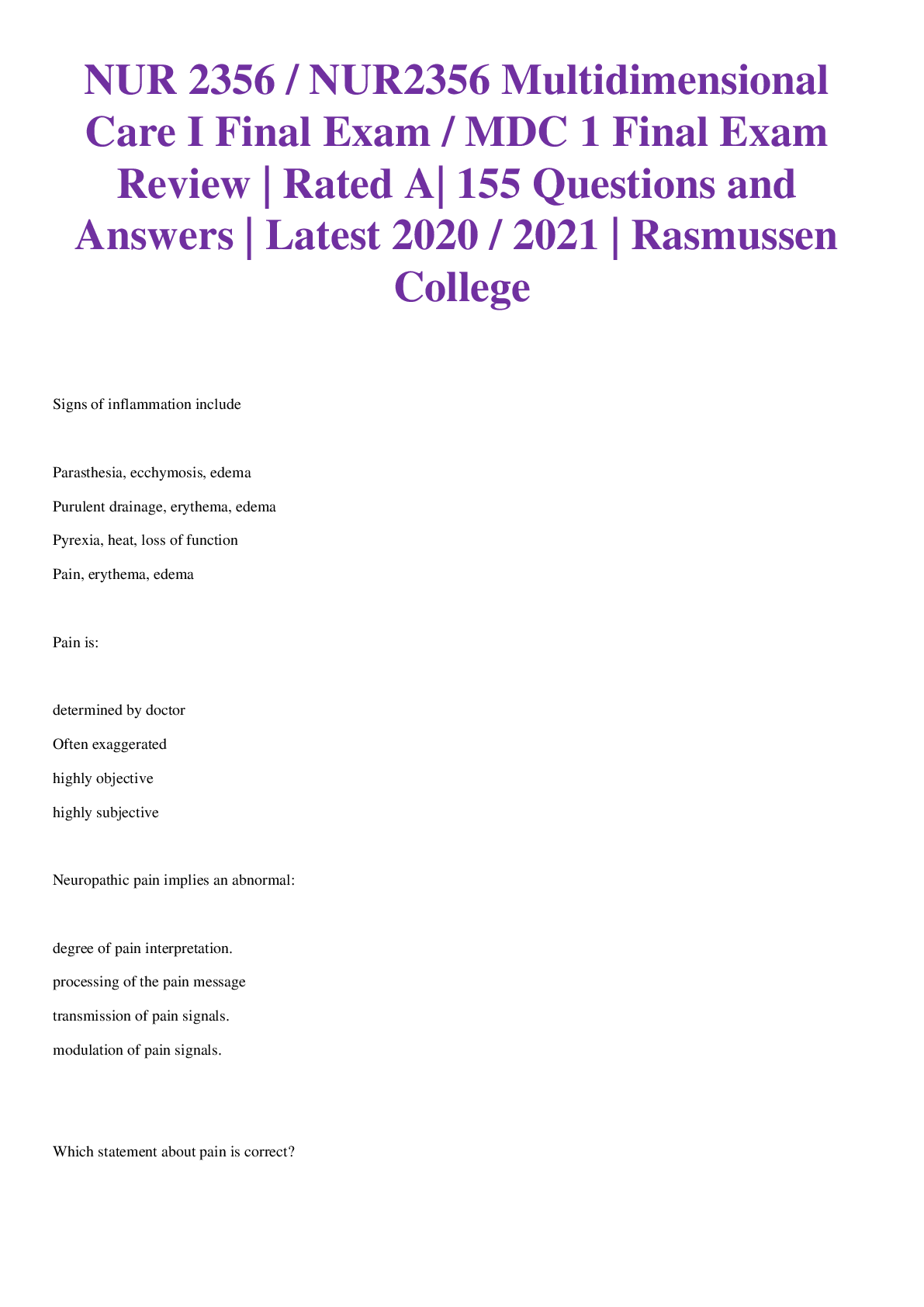Religious Studies > EXAM > COUC 506 Exam 3 | 100 OUT OF 100 | Questions and Answers | Liberty University (All)
COUC 506 Exam 3 | 100 OUT OF 100 | Questions and Answers | Liberty University
Document Content and Description Below
COUC 506 Exam 3 • Question 1 The week five lecture talked about “depreciative desires” as 4 out of 4 points a hindrance to reading Scripture for spiritual formation. What wo... uld be an example of th at hindrance in the life of a client? Selected Answer: All of these concepts were represented in the discussion of “depreciative desires” • Question 2 4 out of 4 points Some beginning Christian counselors may be tempted to quote a quick verse, or give an easy biblical solution without delving into deeper issues in the life of the client. What caution about using the Bible in counseling might that illustrate? Selected Answer: Using the Bible as a smokescreen • Question 3 4 out of 4 points The lecture discussed the value of, and some principles for using meditation in Christian counseling. Which of the following statements best corresponds with the lecture content? Selected Answer: In Christian meditation, we are really changing the pattern from expecting answers to one of patiently waiting on God • Question 4 4 out of 4 points As a Christian counselor, I can use the Bible in an anthropological way. What would be an example of that in counseling? Selected Answer: I help my client to understand the common struggles of humanity • Question 5 4 out of 4 points The lectures explain that comments by the lecturer about Christian counseling are in the “soul care” tradition, and as such, spiritual formation is emphasized. Which answer below would NOT be true of Formative Reading of the Bible, as discussed in the lecture? Selected Answer: It is the same as informative reading. • Question 6 The lectures talk about the “level of risk” that different forms of prayer during counseling take. What is true from that discussion? 4 out of 4 points Selected Answer: The use of meditation, as a form of prayer, or praying directly for a client in- session should come after the counselor knows the client well, knows something about the spiritual history of the client, and has developed a degree of trust in the therapeutic relationship • Question 7 4 out of 4 points The lectures discussed using the METAMORPH grid by filling in the biblical references and spiritual formation columns. What is the purpose behind doing that? Selected Answer: We need to learn how to help clients think biblically and correct faulty thought patterns. • Question 8 4 out of 4 points If we want our clients to “set the stage” for formative reading of Scripture, what should we encourage them to do? Selected Answer: All of these • Question 9 4 out of 4 points Although the lectures emphasized the importance of inside-out change, the lectures also explained the value of outside-in change. What is the function of dislocating experiences in the context of outside-in change? Selected Answer: Sometimes a traumatic personal experience can cause a client to look at deeper issues of the heart. • Question 10 According to the lectures, a guiding principle for using scripture in counseling is 4 out of 4 points Selected Answer: Christian counselors should use scripture in their counseling but should always ask "in what ways, under what circumstances" prior to quoting scripture. • Question 11 4 out of 4 points The lectures talked about several ways that Scripture could be used in counseling. Which of the following are legitimate ways to use Scripture with our clients? Selected Answer: All of these are appropriate ways to use Scripture in counseling • Question 12 The lecture defines the “Trinitarian Relationship in Counseling” as: 4 out of 4 points Selected Answer: The recognition that God is the ever present part of each counseling session. • Question 13 4 out of 4 points In our Christian counseling, if we want to help our client read the Bible for spiritual formation, what is true? Selected Answer: We need to help our clients develop the personal discipline to diligently approach God’s word • Question 14 Healing prayer can best be described as: 0 out of 4 points Selected Answer: “Inside-out” change in upward, outward, and inward attitudes. • Question 15 4 out of 4 points In the context of the discussion on inside/out, outside/in change, the lecture used the term “condemnation engineering” as an example of a mechanism of outside-in change. What is an example of that mechanism? Selected Answer: A therapist unconditionally accepts a client in spite of the client’s off-putting behavior • Question 16 4 out of 4 points Based on the week five lecture, what are some appropriate ways to use scripture in counseling? Selected Answer: Directly using scripture, implicitly utilizing scriptural principles within counseling strategies, and using scripture to evaluate to determine if a counseling strategy is biblically consistent or biblically neutral • Question 17 4 out of 4 points Which answer below best describes the statement: “We can always count on God’s Word, but we must be careful of our interpretations and applications,” -- from the Five Potential Problems When Using the Bible in Christian Counseling lecture? Selected Answer: The “overconfidence” trap • Question 18 4 out of 4 points The lectures talked about specific strategies for using the Bible in counseling. Which of the following would NOT be endorsed based on the lecture discussion Selected Answer: I could use counseling techniques that teach clients how to legitimately get revenge on an abusing spouse • Question 19 4 out of 4 points In the lecture discussion on potential problems when using the Bible in counseling, the lecturer referred to “relying excessively on the Bible when other strategies might be more helpful to the client at that moment.” What “trap” may that quote illustrate? Selected Answer: The “overreliance” trap • Question 20 3 out of 3 points In the lecture discussion of prayer in Christian counseling, the definition of prayer focused more on connecting with God, rather than learning how to pray to get our petitions answered. Selected Answer: Tru e • Question 21 3 out of 3 points With regard to prayer and Christian counseling, the lecture refocused the question away from whether prayer should be a part of counseling, to a focus on what types of prayer minister best to our clients. Selected Answer: Tru e • Question 22 3 out of 3 points Christian meditation, in the context of spiritual counseling may be incompatible with understanding what is going on. Selected Answer: Tru e • Question 23 3 out of 3 points A basic principle of prayer is that when we get closer to God, we also get closer to people as well. Selected Answer: Tru e • Question 24 3 out of 3 points Prayer helps us to get beyond the illusion that we are self-sufficient to move us to the reality that we are dependent on God. Selected Answer: Tru e • Question 25 3 out of 3 points God gives special revelation through the presence, person, and purpose of Jesus Christ, through the inspired Scriptures and through the work and guidance of the Holy Spirit. Selected Answer: Tru e • Question 26 3 out of 3 points Under the deceptive influence of the enemy, people have tried to take control of their own destinies and goals to fulfill their desires. Selected Answer: Tru e • Question 27 3 out of 3 points Christian counselors insist that except for a few instances, people are not responsible for their choices, regardless of the contributing circumstances. Selected Answer: Fals e [Show More]
Last updated: 1 year ago
Preview 1 out of 5 pages
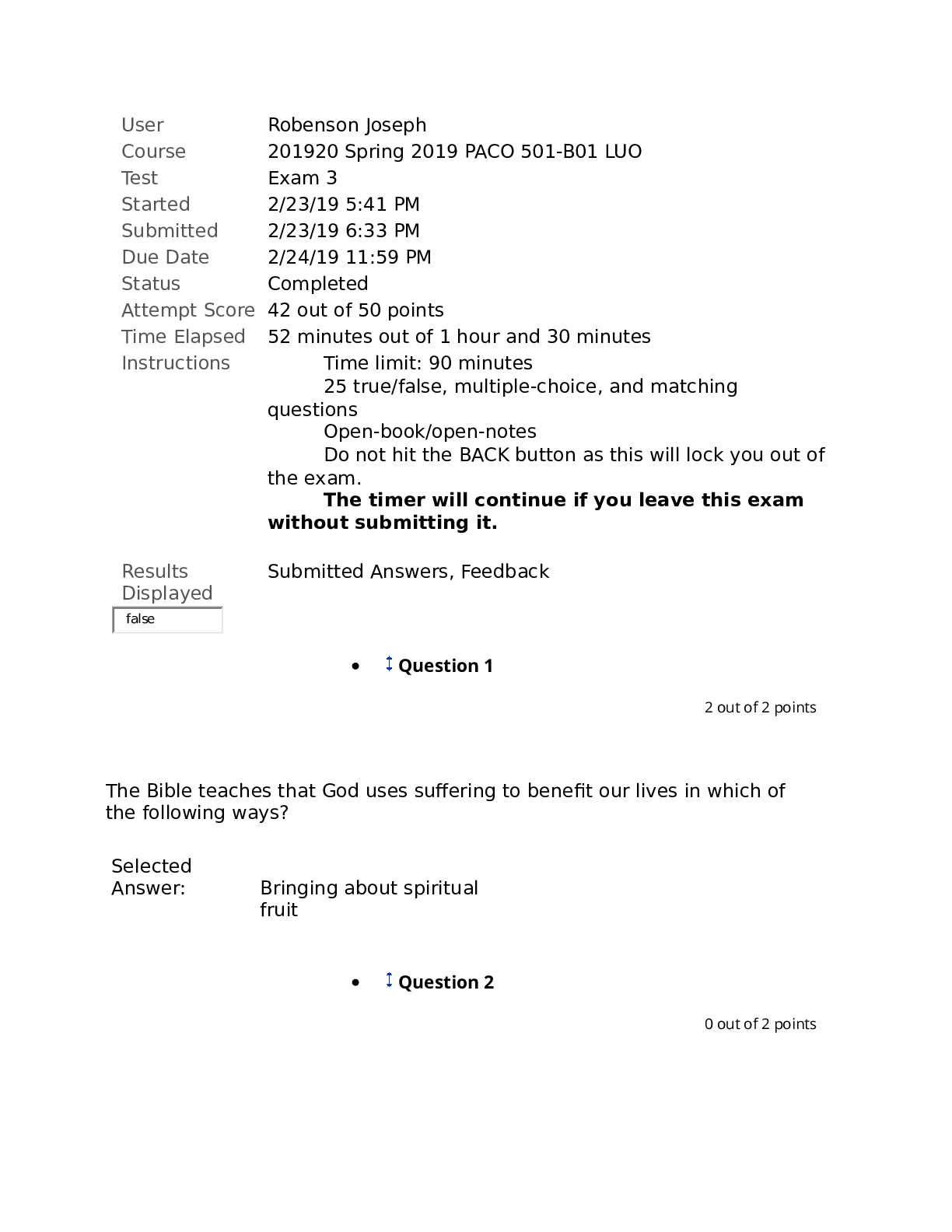
Reviews( 0 )
Document information
Connected school, study & course
About the document
Uploaded On
Jul 29, 2022
Number of pages
5
Written in
Additional information
This document has been written for:
Uploaded
Jul 29, 2022
Downloads
0
Views
40


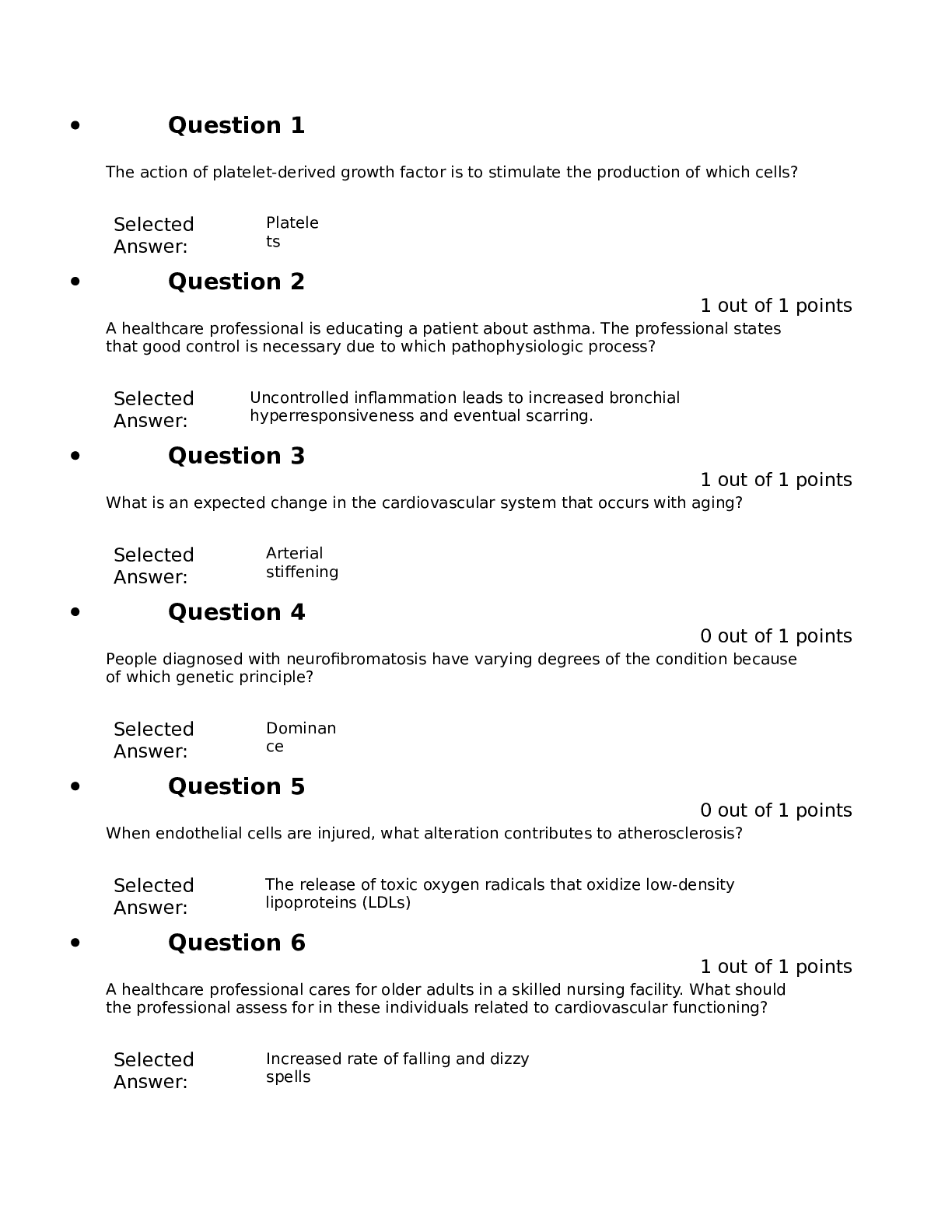
.png)

